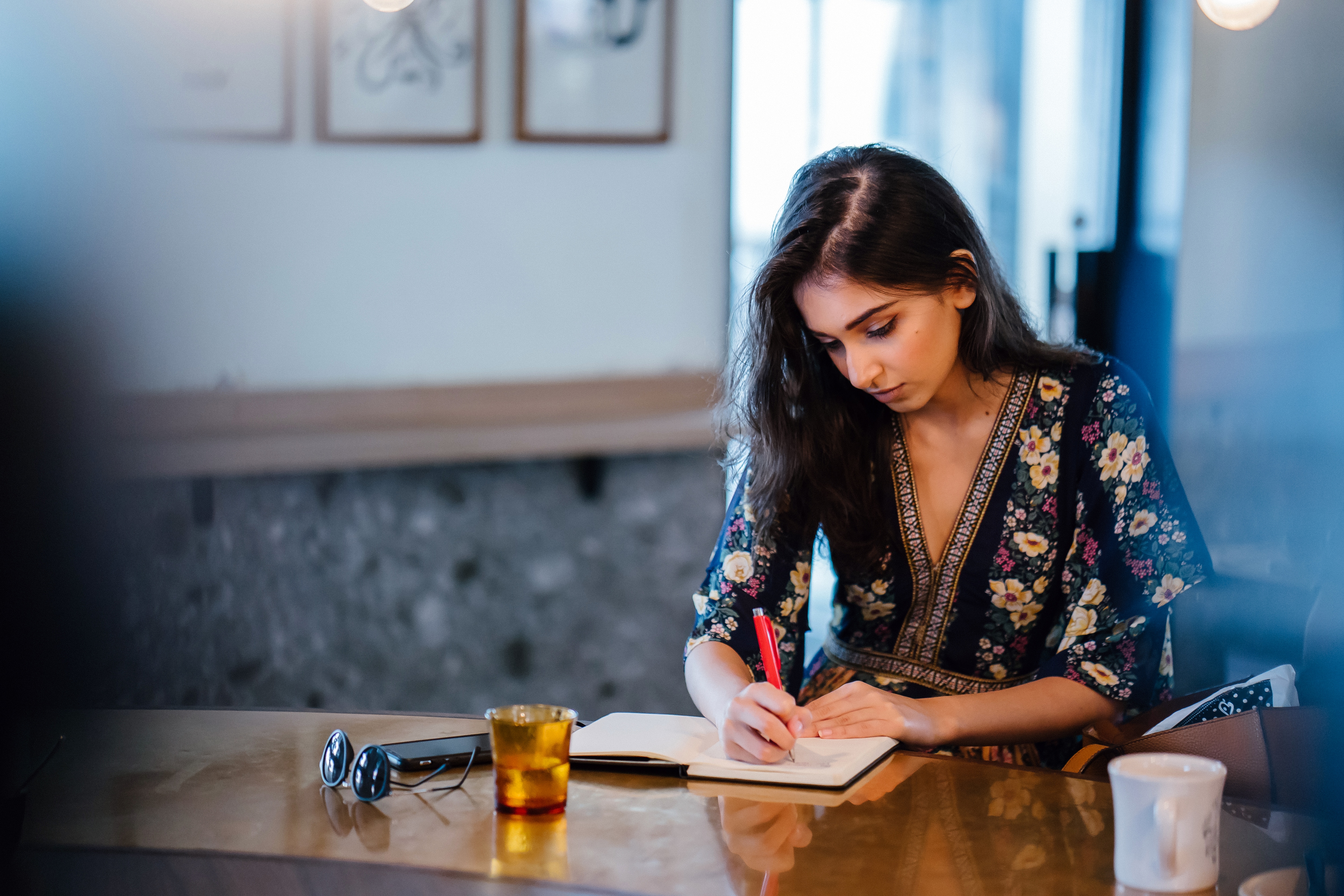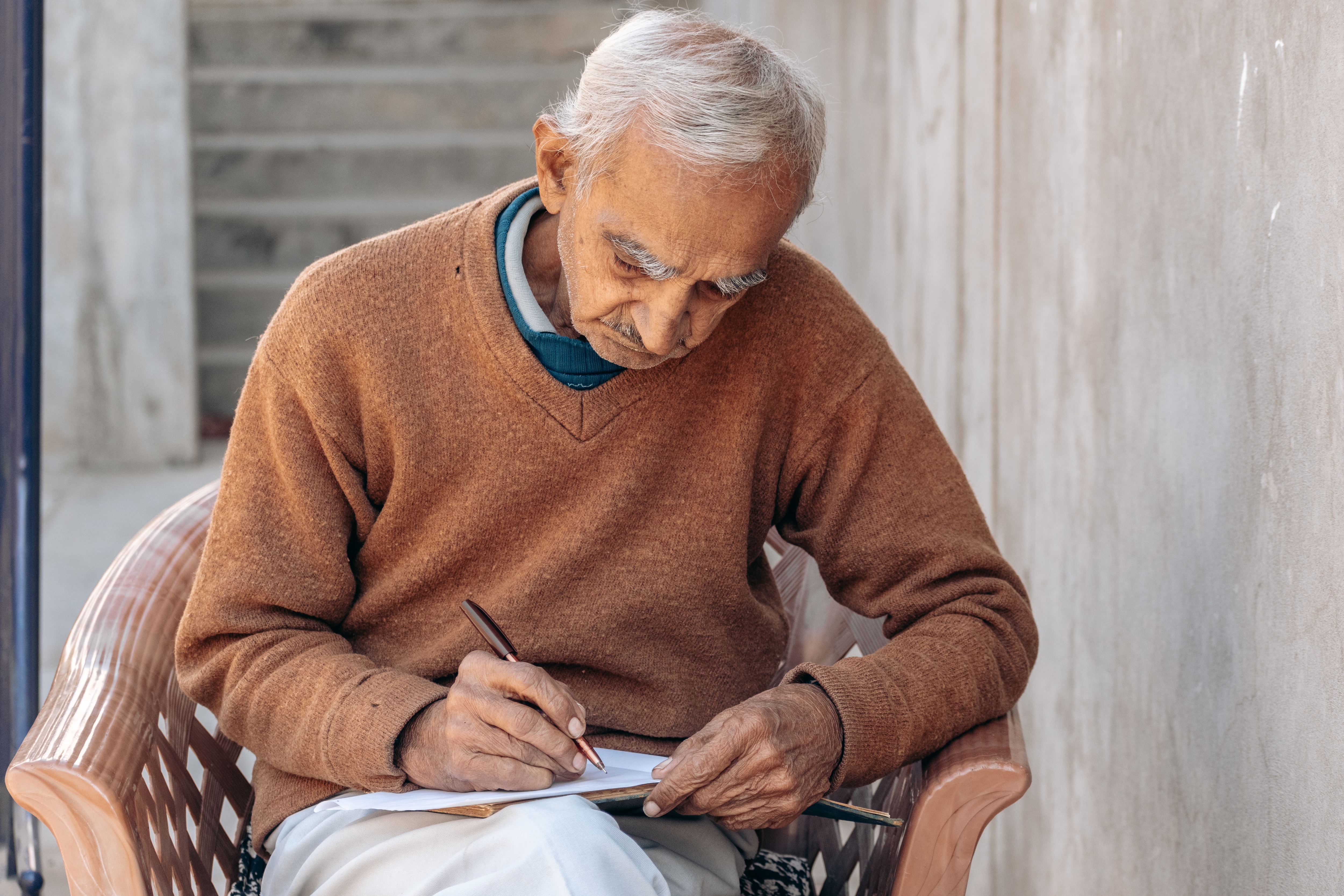From hindustantimes.com
From writing in a diary every day to maintaining online curiosity journals and bullet journaling on Instagram, more people are discovering that putting down their thoughts can help them pull through this difficult time
A few months into lockdown, author-screenwriter Nikita Deshpande found herself dreading going to bed. She wasn’t expecting ghosts or nightmares, she was just “anxious about being anxious”. “Strangely, during the pandemic I couldn’t sleep. Maybe changes in workday patterns, procrastination with WFH, or the general restlessness was causing it. Most times anxious thoughts and sometimes creative ideas that my brain fired at night prevented me from sleeping. Soon, the fear of lying awake for hours made me anxious about even going to bed,” says Deshpande, who started journaling at nine when her grandfather gifted her a diary to chronicle travel experiences from her maiden trip abroad.
The diary has been her friend ever since and has seen her through times when she was bullied at school and whenever she was lonely or low. Now, she has turned to writing at night to combat insomnia. “And it’s worked magically! I turned journaling into a ritual where I lie down in bed and write. Now, from something I fear, the bed has become a space I’m comfortable in. I write even if I’m spent or have nothing to say as it helps me sleep,” says Deshpande, who started conducting workshops on journaling after realising the practice could help others too.

The cathartic and calming effects of journaling have long been known. Carl Jung’s disciple and noted American psychologist Dr Ira Progof is credited with popularizing journaling as a tool for therapy. In the 1960s, he developed the Intense Journaling method after observing that patients who maintained journals worked through their situations quicker and better. It gave journaling structure and a mechanism to integrate revelations for personal and spiritual growth. His book At a Journaling Workshop, and his workshops conducted worldwide by Dialogue House, USA, are cited in several books.
Since conversations around mental health have gained momentum in India, journaling for therapy has caught on here too. Mumbai-based psychologist Dr Labdhi Shah Koradia found such a profound difference in the lives of clients who maintained journals that, five years ago, she began writing in one herself.
“Apart from dealing with our own lives, as psychologists, we take in a lot about others and as it’s all confidential, I can’t share things with my husband or friends. In complicated cases too, you can only discuss certain aspects with colleagues. While we are trained to disconnect, it isn’t always easy. Putting down my feelings and experiences of the day gives me the disconnect I need. The diary is where I can share the good, bad, ugly without being judged or stopped. This way, I don’t absorb negativity in my subconscious and can start afresh the next day. At the same time, I’m also able to reflect and improvise,” says Koradia, whose daily bedtime ritual, barring Sundays, involves journaling and relaxing with essential oils.
Over time, the practice has also helped her bond with patients. “Typically, a client’s first reaction to journaling is ‘Do I have to write every day?’ But when I tell them ‘Yes, I do it too, although initially I had to put reminders and try different methods to reach a routine’, they feel more comfortable and confident that I’ll understand their point of view. Likewise, when they forget, or skip a week because they’re overwhelmed with something, I can relate to their challenges and am not harsh. In fact, it’s helped me customise solutions for people who aren’t comfortable writing – like logging daily experiences through messages, voice notes, videos, sometimes even sketches,” she says.
But it’s not only people who don’t like writing who take to newer mediums. Before blogs saw specialisation, like journals, they too documented people’s daily lives. Koradia blogs about caring for her 93-year-old grandmother-in-law @MamaToMyGranny. Insta-journals, apps like Evernote, online journaling contests -- technology has thrown open a whole new world.
Abdul Gani Punjabi, who started The Speaking Diary podcast during the lockdown, has experienced the best of analog and digital journaling. “When we moved to Saudi Arabia in my fifth standard, I felt isolated because people there mostly stay home, whereas I was used to going anywhere, anytime in Mumbai. Without the right exposure, thoughts, or supportive people, you need to grow. I was lost and experienced a mini depression. As I had heard that journaling helps, I decided to write every day,” says Punjabi, who read Anne Frank’s The Diary of a Young Girl at 15 and whose sister pens poems in her diary.
From jotting daily routines he began analysing events and reflecting on outcomes. “Good, shameful, depressing, I left out nothing. And the more I fleshed things out, the clearer life got,” he says adding that journaling helped him develop his emotional intelligence. “You stop feeling neglected or like your voice and existence doesn’t matter. From a scared, self-critical introvert, journaling has made me calm, confident and positive,” he says. With his new-found confidence, about four years ago, he ventured into journaling experiments on social media. At first, he used the Your Quote app, where individuals ‘collaborate’ with others by adding on their own thoughts or quotes to earlier ones. Next, he ventured into Instagram, YouTube, and most recently, his podcast. “I never thought I’d do all this, but enjoyed working with new mediums. Few like reading these days. The podcast is public because friends insisted. My objective is still self-improvement,” says Punjabi, whose ‘speaking diary’ in Hindi and Urdu reflects on everything from religion and relationships to abstract concepts like silence and change.
One of Koradia patients took to journaling so well that she went on to write a book. Nikita Deshpande’s 2016 debut novel It Must Have Been Something He Wrote also grew from journaling. She says, “A lot of day-to-day happenings, and ideas about what books and literature should be like went into my journal. Over time, they got distilled into an idea for a story; I began exploring storylines, and epiphanies about myself and others become character studies. While you won’t find chunks of my diary in the book, it was the foundation, a space to test out characters and style. Journaling developed my voice,” she says.

Although freewheeling jottings like Japan’s tradition of pillow books or zuihitsu (assorted writing) form the content of most diaries, historically there have been many focused journals including travelogues like Ibn Battuta’s, Darwin’s journals to develop his theories, and even intense spiritual diaries that were precursors to today’s gratitude journals. Design thinker Tarun Durga (40) maintains a ‘curiosity journal’, where he puts down “quotes, concepts, anything I find absolutely interesting from books, blogs, anywhere”. He started doing this after he realised that he had “been reading consistently and obsessively all my life, but was only retaining a fraction of stuff that mattered.” Durga, who makes his own notebooks using Japanese Tomoe River paper, which is great for fountain pens, says he “needed a way to process all this important, incredible material.” His journal entries now incorporate sketches, diagrams, and mind maps to create a visual summary of sorts. “Engaging multiple senses helped me retain better. Now I feel like revisiting the takeaways and this method also saves me time – rather than covering each chapter and page deeply, I can quickly process the highlights in a way that makes sense to me. In fact, I’ve also begun noting my disagreements; so it’s almost become like a conversation with books,” adds Durga, who indexes his journals. This, he reveals, was inspired by Ryan Holiday’s tagging system that allowed the author to link ideas from one section of his research notes to another. His journaling habit has also been fruitful in other ways. “My doodles have become art; art that sells,” says Durga, who posts his sketches on Facebook and Instagram.
“I always wanted to make art, but to draw daily you also need inspiration every day. The journal gave me that. What started as quick, bad sketches of speakers whose quotes I was noting, has become a way for me to process ideas, convey messages, express curiosity,” he says.
And then there’s bullet journaling – a meticulous, notebook organising system. Indeed, there is a vibrant bullet journaling scene on social media but many, Nikita Deshpande has noticed, are intimidated and/or put-off by the beauty contest between BuJos that make it to Insta.
But whether you write in an old fashioned paper diary or maintain a public one online, it is clear that journaling is getting bigger as, in an increasingly complicated world, it offers pause, helps untangle thoughts, unearths latent talents and eventually leads individuals to a greater understanding of themselves and the larger world.
No comments:
Post a Comment